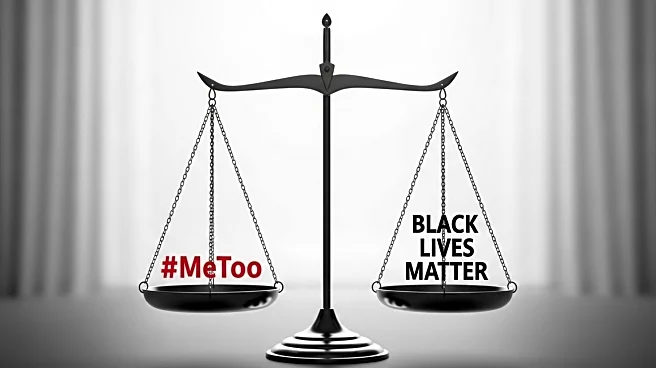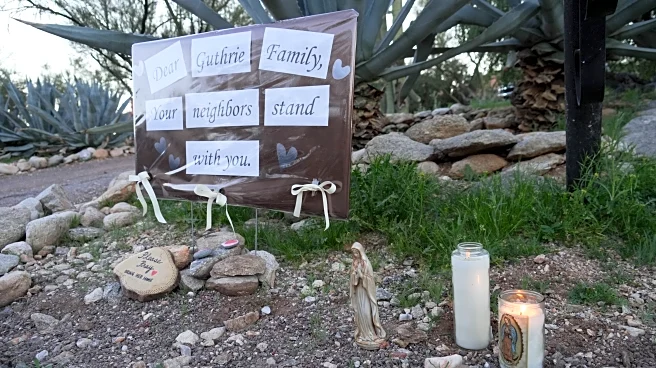What's Happening?
Ayo Edebiri, during a recent interview alongside Julia Roberts and Andrew Garfield, addressed the ongoing relevance of the #MeToo and Black Lives Matter movements. The interview, conducted by Federica Polidoro, questioned the current status of these movements, suggesting they might be 'done.' Edebiri responded by emphasizing that the work of activists continues, despite a decrease in mainstream media coverage. She noted that while hashtags may not be as prevalent, the efforts remain active and necessary due to the charged nature of the world. Garfield supported Edebiri's view, acknowledging that the movements are still alive, albeit less prominently labeled or covered.
Why It's Important?
Edebiri's comments underscore the persistent need for activism and awareness in social justice movements. Her assertion that the work is 'not finished' highlights the ongoing challenges faced by these movements in maintaining momentum and visibility. This dialogue is crucial in ensuring that issues of gender and racial equality remain at the forefront of public discourse, influencing policy and societal attitudes. The interview also reflects broader cultural debates about the role of media in shaping perceptions of activism and the importance of continued engagement in these causes.
What's Next?
The interview has sparked discussions about the portrayal and perception of social movements in media. As Edebiri and Garfield's comments gain traction, there may be increased scrutiny on how these movements are covered and supported by Hollywood and other influential sectors. This could lead to renewed efforts to amplify the voices of activists and ensure that the issues they champion receive sustained attention.
Beyond the Headlines
The exchange raises questions about the intersection of media, activism, and public perception. It challenges the notion of 'completion' in social movements, suggesting that progress is ongoing and requires continuous effort. The dialogue also touches on the ethical responsibilities of journalists and media outlets in framing questions and narratives around sensitive topics.










